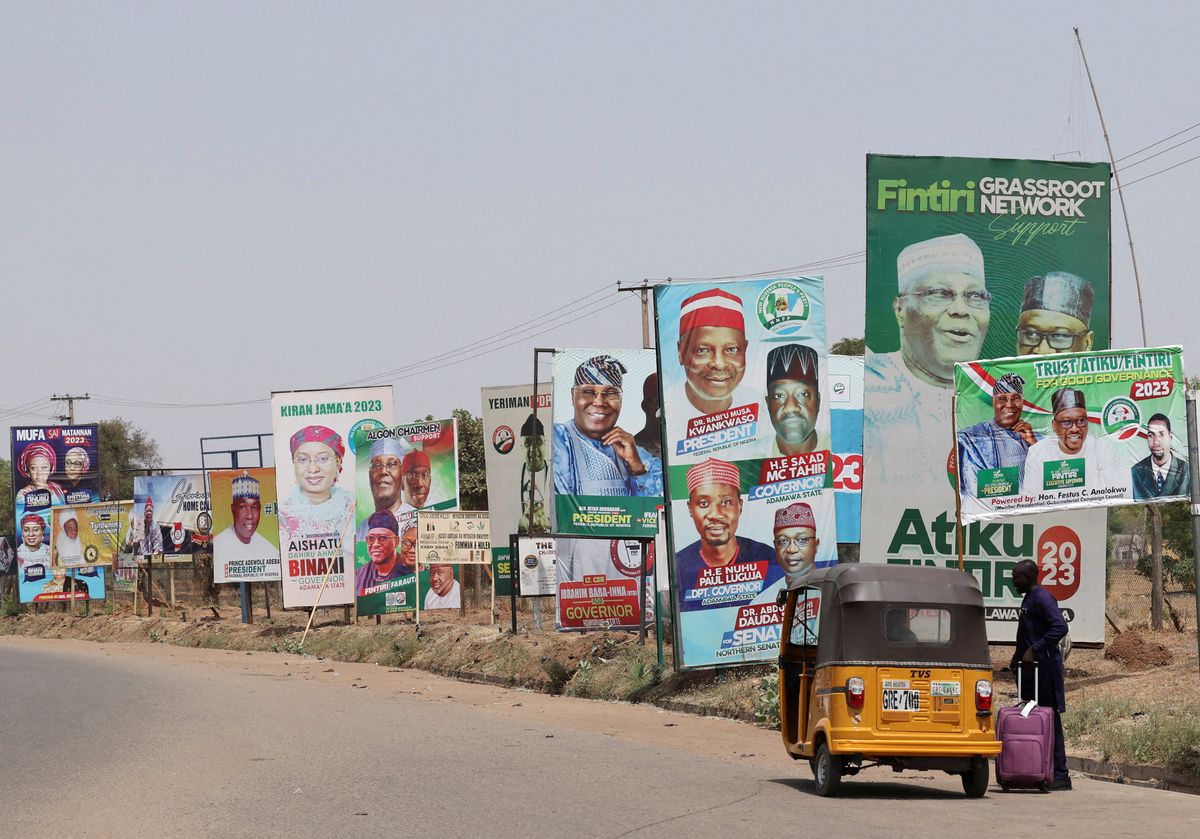Nigeria's presidential election head-scratcher
Nigerians go to the polls Saturday to vote in what is being billed as the most open presidential election in Africa's most populous country since democracy was restored in 1999. That's mostly thanks to buzz about Peter Obi, a third-party candidate who's leading most polls ahead of both Bola Ahmed Tinubu, the ruling party's pick, and opposition candidate Atiku Abubakar. With almost half the electorate undecided, Obi faces tough odds. First, to win outright, he must get the most votes nationwide and at least 25% in at least two-thirds of Nigeria's 36 states – but he doesn’t have strong party machinery to turn out voters. Second, if no candidate meets both conditions, the election goes to a runoff between the most-voted for candidate and — here's where it gets complicated — the one who placed second in the highest number of states. Also, keep an eye out for the rollout of machines to verify biometric voter ID to curb fraud. If the devices malfunction or are not widely deployed, expect many Nigerians to consider the election anything but free and fair.
Interested in the Nigerian election? Listen to Amaka Anku, head of Eurasia Group’s Africa practice, on this GZERO podcast in collaboration with The Center for Global Development podcast.
Biden picks ex-credit card exec to lead World Bank
President Joe Biden will nominate former Mastercard CEO Ajay Banga to replace the outgoing David Malpass as president of the World Bank. (The institution is traditionally led by a US citizen picked by the White House, while a European heads the International Monetary Fund, its sister org.) The selection of Banga is somewhat puzzling since he lacks a specific or public-sector background in climate change. The Biden administration wants the World Bank to focus on the issue, and Banga’s nomination comes just months after Malpass got in a political firestorm over his views on climate science. (He later denied being a climate denier on GZERO World.) Still, Banga has experience managing a multinational corporation and prioritized the climate at Mastercard. Perhaps Biden thinks he can run the World Bank more like, well, a bank, to mobilize private-sector climate finance — cash to help mainly developing nations do things like transition to more green energy.






